The content of the article
Sea kale is a very useful seaweed that people eat with pleasure. She has another name - kelp. The product is very useful - it contains a huge amount of vitamins - A, C, E, K, the entire group of vitamins B. The composition of the laminaria is full of various trace elements - chlorine, potassium, sodium, magnesium, silicon, iron, calcium, phosphorus, a lot of easily digestible iodine. In addition, in seaweed there are pectins, amino acids, sterols, fatty acids. With all this value, the calorie content of the product is very low - no more than 25 calories per 100 grams of sea kale. This allows you to use a delicacy in any quantities, use the product in losing weight. Today we will talk about the beneficial and harmful properties of kelp and consider delicious recipes with seaweed.
Useful properties of seaweed for humans
Unfortunately, kelp in its pure form is not so often found in grocery stores. Most often, seaweed is sold in canned form. However, as a rule, vinegar is present in the marinade, which significantly reduces the benefit of the product. Therefore, it is best to buy clean kelp - ready or dried. After all, it has a tremendous impact on the human body.
- Iodine. The main useful property of kelp is the high content of iodine, especially if you live in a region with a small amount of iodine in the ground. Laminaria helps to improve the functioning of the thyroid gland, reduce the size of the goiter, improve the functioning of the endocrine system, and reduce the likelihood of developing diabetes. Lack of iodine reduces performance, concentration and memory, regular consumption of seaweed will help solve this problem.
- Vessels. Laminaria is very useful for the work of the cardiovascular system. It reduces the level of cholesterol in the blood, dilutes the blood, protects against the development of thrombophlebitis. With regular consumption of seaweed reduces the risk of heart attack, stroke and hypertension.The diet of the Japanese is very much different algae, so the people of this country practically do not suffer from atherosclerosis.
- Antiviral. Laminaria, getting into the body, inhibits the development of various viruses and bacteria, copes with a cold, accelerating recovery. If you consume cabbage constantly, at least once a week, the immunity increases significantly.
- Oncology. In many traditional practices, seaweed is included in the complex nutritional nutrition for oncology. Its components prevent the development of malignant tumors. Of course, it will not be possible to suppress the disease with the help of kelp, but it’s quite realistic to slow down the growth of the tumor.
- Intoxication. Laminaria, getting into the stomach and intestines, like a sponge absorbs excess liquid, and with it, toxins, slags, heavy metal salts. Sea kale is certainly introduced into the diet of people working in hazardous industries - this is how they focus on cleansing the body. The product will be useful to people with alcohol, nicotine, food and drug poisoning.
- Gout. This disease is the impossibility of removing salts from the body.So in sea kale there are alginates, which promotes the excretion of uric acid, facilitating the work of the kidneys.
- Intestines. Sea kale is a natural fiber that perfectly cleans the intestines, saving it from stagnant feces. A large amount of dietary fiber will help to quickly and gently get rid of constipation. It is also useful for hemorrhoids - the cracks do not grow if bowel movement is regular.
- For men's health. The ancients believed that sea kale is one of the powerful aphrodisiacs for men. It improves the potency, contributes to sexual arousal.
- For women's health. Seaweed affects not only men, but also women. Regular consumption of cabbage solves the problem with frigidity, makes a woman more sensitive. Laminaria regulates the production of estrogen, so the woman improves the menstrual cycle.
- Antiseptic. Laminaria can be considered an antiseptic medicine - algae-based decoction can be used for rinsing the throat and oral cavity, for rinsing the nose with sinusitis, for treating various skin diseases.Moreover, the alga itself is used to make lotions for bruises, arthritis, rheumatism.
- Weight loss. Sea kale is one of the best products for weight loss. Firstly, the low calorie content of kelp allows you to use it without restrictions, the figure will not suffer from this. Secondly, kelp swells in the stomach due to the large amount of dietary fiber, giving a persistent and long-lasting feeling of fullness. Sea kale can be consumed at any time of the day, even before bedtime.
- When pregnancy. This is one of the few products that can be consumed in pregnancy in unlimited quantities. Cabbage contains a lot of iodine, which is necessary for building the skeleton and nervous system of the fetus. Regular consumption of future cabbage mom reduces the risk of various pathologies in the baby, creates favorable conditions for the development of the child's vision and hearing, and protects the pregnancy from miscarriage. Moreover, the condition of the woman is improving - she sleeps well, calms down, does not suffer from constipation, does not gain excess weight.
In addition, sea kale is recommended for pancreatitis - it contains a lot of nickel and cobalt, which are necessary for the pancreas to work. Powder of seaweed is used in the treatment of gastritis with high acidity.Laminaria stimulates insulin production, so the alga is very useful in diabetes of the second type. However, this plant is popular not only for ingestion, it is actively used externally.
The use of kelp in cosmetology
Laminaria is widely used in cosmetology, its substances affect the blood vessels of the skin, which allows to cope with many problems.
- Moisturizing and rejuvenating. Laminaria perfectly affects the condition of the skin. They make effective face masks out of it - the kelp nourishes and rejuvenates the epidermis, promotes the production of collagen. A large amount of vitamin C in the composition makes sea kale one of the best means to rejuvenate the skin.
- Whitening The product contains niacin, which eliminates the activity of melanin. That is, kelp-based masks have a powerful whitening effect. This allows you to get rid of age spots, unwanted sunburn, freckles, etc.
- Vascular stars. As noted, kelp penetrates the blood vessels and makes them more mobile and elastic.This is necessary to eliminate spider veins and rosacea on the face. To solve this problem, sea kale must be used not only externally, but regularly to use it inside.
- Cellulite Laminaria perfectly affects the condition of the skin of the hips and buttocks. Masks with kelp penetrate into the deep structures of the skin, increase blood circulation, improve the flow of lymphoid tissue, which allows you to gradually get rid of orange peel.
- Stretched skin. Collagen production and effects on the blood vessels allows the use of kelp in the fight against stretched skin for weight loss. To return the epidermis to its former elasticity and reduce its size, you need to make lotions from fresh kelp. Powder of seaweed is often added to various cosmetic products - scrubs, lotions, cellulite creams, formulations for wrapping, etc.
- Hair. You can heal your hair in just a couple of weeks if you rinse it every day with a decoction of seaweed. This will allow the hair to become stronger, shiny and strong.
In addition, sea kale is used as an anti-inflammatory mask in order to relieve irritation and reduce the number of acne and blackheads.A high content of iodine allows you to normalize the production of sebum and make the face more dull.
Contraindications when using sea kale
Any product and any drug has its own contraindications, and sea kale is no exception. If during pregnancy the use of seaweed is permissible, then during lactation the product should be consumed with great care, starting with small portions and carefully tracking the reaction of the baby. In cases of kidney diseases - nephritis and kidney failure, sea kale is not recommended. In hyperthyroidism, when the activity of the thyroid gland is increased and there is a large amount of iodine in the body, you should not add cabbage to food either. When buying a product, pay attention to the place where it was brought from and where it was collected. Algae perfectly absorb toxins and harmful substances from the environment. Therefore, you can not eat seaweed, collected in a poor environmental situation.
How to eat sea kale
Sea kale is one of the most common algae that people eat. It grows on the coasts of the seas. On an industrial scale, kelp is collected directly in the water.But often sea kale after low tide throws it onto the shore, where people pick it up and dry it. It is one of the few products that, when dried, does not lose its beneficial properties. Eat kelp, regularly add it to your diet to maintain health and beauty for many years.
Video: sea kale - a storehouse of useful elements

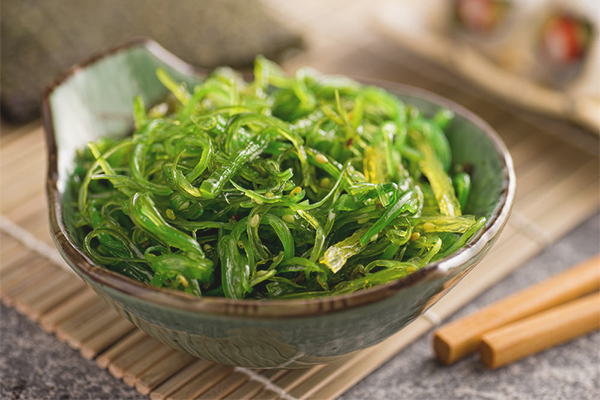
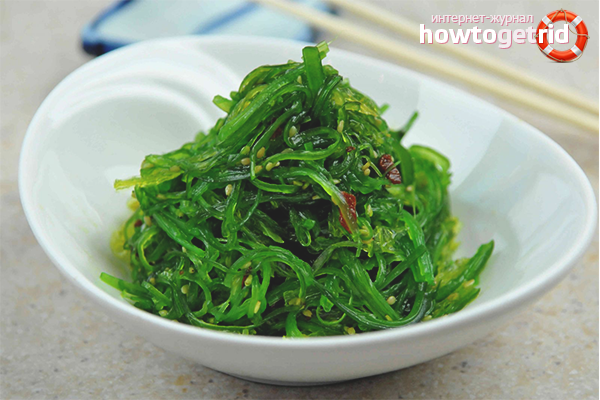

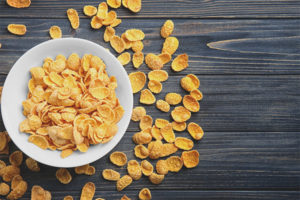
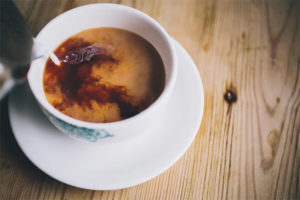

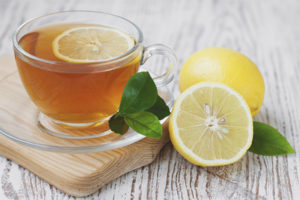
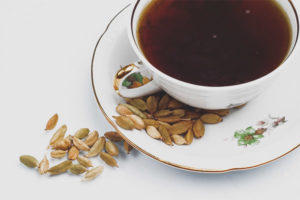
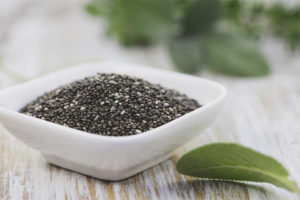
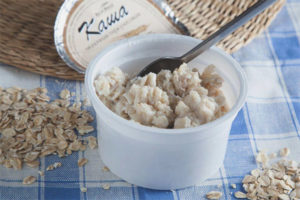

To send